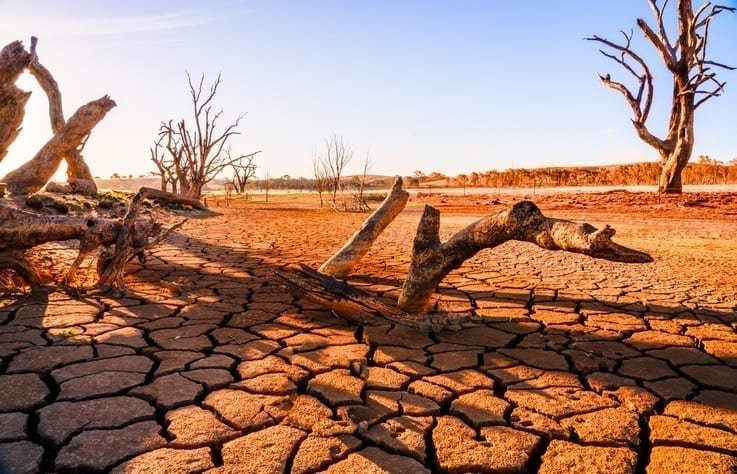Protecting and restoring forests and urgently revamping the global food system through dietary change are key solutions to the escalating land and climate crisis, according to a new UN report.
Land is already under growing human pressure and climate change is adding to these pressures. At the same time, keeping global warming to well below 2ºC can be achieved only by reducing greenhouse gas emissions from all sectors including land and food, the Intergovernmental Panel on Climate Change (IPCC) said in its report, released yesterday (08 August).
‘Governments challenged the IPCC to take the first ever comprehensive look at the whole land-climate system. We did this through many contributions from experts and governments worldwide. This is the first time in IPCC report history that a majority of authors – 53% – are from developing countries.’
HOESUNG LEE
Chair of the IPCC
The report states that since the pre-industrial period the temperature over land has already increased 1.53°C compared with the global average of a 0.87°C increase, taking into account air above ocean and land. The temperature rise is impacting food security and driving desertification and land degradation.
Land degradation
When land is degraded, it becomes less productive, restricting what can be grown and reducing the soil’s ability to absorb carbon.
This exacerbates climate change, while climate change in turn exacerbates land degradation in many different ways.
‘The choices we make about sustainable land management can help reduce and in some cases reverse these adverse impacts’, said Kiyoto Tanabe, co-chair of the Task Force on National Greenhouse Gas Inventories.
‘In a future with more intensive rainfall the risk of soil erosion on croplands increases, and sustainable land management is a way to protect communities from the detrimental impacts of this soil erosion and landslides. However there are limits to what can be done, so in other cases degradation might be irreversible’, he said.
Desertification
Roughly 500 million people live in areas that experience desertification. Drylands and areas that experience desertification are also more vulnerable to climate change and extreme events including drought, heatwaves, and dust storms, with an increasing global population providing further pressure.
‘New knowledge shows an increase in risks from dryland water scarcity, fire damage, permafrost degradation and food system instability, even for global warming of around 1.5°C’, said Valérie Masson-Delmotte, co-chair of IPCC Working Group I.
‘Very high risks related to permafrost degradation and food system instability are identified at 2°C of global warming’, she said.
Food security
Coordinated action to address climate change can simultaneously improve land, food security and nutrition, and help to end hunger. The report highlights that climate change is affecting all four pillars of food security: availability (yield and production), access (prices and ability to obtain food), utilization (nutrition and cooking), and stability (disruptions to availability).
‘Food security will be increasingly affected by future climate change through yield declines – especially in the tropics – increased prices, reduced nutrient quality, and supply chain disruptions’, said Priyadarshi Shukla, co-chair of IPCC Working Group III.
‘Less Meat = Less Heat’
Ahead of the report’s release, Greenpeace Switzerland activists unveiled a banner outside the UN meeting saying: ‘Less Meat = Less Heat. Climate Action NOW!’
‘Defending and restoring our forests and changing our food system by eating less meat will help turn the climate and biodiversity crisis into new hope for nature and people. Our land and biodiversity is under enormous pressure, as seen by the devastating fires in Siberia. We need to make some hard choices because we cannot use up our land twice and we’re already over-using it.
‘To protect our climate and feed the world demands action now. Governments are now compelled to update and enhance their climate action targets in light of the IPCC’s report.’
DR CHRISTOPH THIES
Forests and Climate campaigner at Greenpeace Germany
 Play Video about This Rock Might Just Save The World
Play Video about This Rock Might Just Save The World Play Video about Play 2 hours of rock
Play Video about Play 2 hours of rock Play Video about Play 2 hours of brook
Play Video about Play 2 hours of brook Play Video about Play 2 hours of sheep
Play Video about Play 2 hours of sheep











































